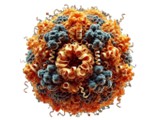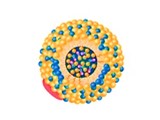Lipoproteins are macromolecular complexes composed of lipids and proteins. They play a key role in transporting lipids (cholesterol, triglycerides) through the circulatory system and are crucial for fat metabolism in the body. Lipoproteins are classified into several categories based on their density, with each type serving specific functions in lipid metabolism.
Functions of Lipoproteins
Lipoproteins transport hydrophobic lipids in plasma, an essentially aqueous medium, by encapsulating them in a hydrophilic shell. This process is essential for maintaining lipid balance, regulating hormone biosynthesis, and preventing the buildup of fats in the arteries.
Clinical Applications
The study of lipoproteins is essential for understanding and treating cardiovascular diseases, such as atherosclerosis, where an accumulation of LDL cholesterol in the arteries can lead to heart attacks. Lipoprotein analyses are also crucial in monitoring and treating metabolic disorders.







